
Joseph Charles Bonanno, sometimes referred to as Joe Bananas, was an Italian-American crime boss of the Bonanno crime family, which he ran from 1931 to 1968.
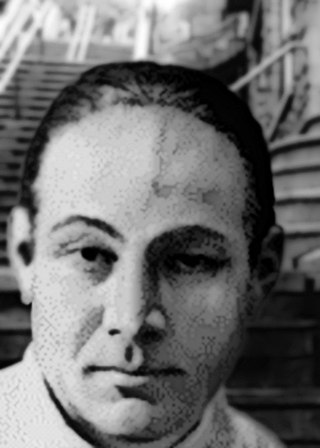
Salvatore Maranzano, nicknamed Little Caesar, was an Italian-American mobster from the town of Castellammare del Golfo, Sicily, and an early Cosa Nostra boss who led what later would become the Bonanno crime family in New York City. He instigated the Castellammarese War in 1930 to seize control of the American Mafia, winning the war after the murder of rival faction head Joe Masseria in April 1931. He then briefly became the Mafia's capo di tutti capi and formed the Five Families in New York City but was murdered on September 10, 1931, on the orders of Charles "Lucky" Luciano, who established The Commission, in which families shared power to prevent future turf wars.

Giuseppe "Joe the Boss" Masseria was an Italian-American Mafia boss in New York City. He was boss of what is now called the Genovese crime family, one of the New York City Mafia's Five Families, from 1922 to 1931. In 1930, he battled in the Castellammarese War to take over the criminal activities in New York City. The war ended with his murder on April 15, 1931, in a hit ordered by his own lieutenant, Charles "Lucky" Luciano, in an agreement with rival faction head Salvatore Maranzano.
The Castellammarese War was a bloody power struggle for control of the American Mafia between partisans of Joe "The Boss" Masseria and Salvatore Maranzano that took place in New York City from February 26, 1930, until April 15, 1931. The feud was named after the Sicilian town of Castellammare del Golfo, Maranzano's birthplace.
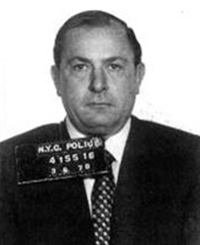
Joseph Anthony Colombo Sr. was the boss of the Colombo crime family, one of the Five Families of the American Mafia in New York City.

Giuseppe "Joe" Profaci was an Italian-American Cosa Nostra boss who was the founder of what became the Colombo crime family of New York City. Established in 1928, this was the last of the Five Families to be organized. He was the family's boss for over three decades.
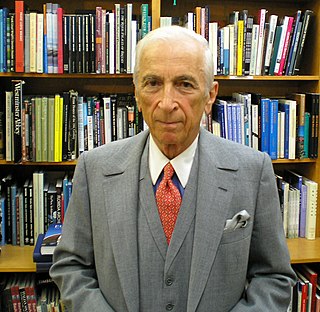
Gaetano "Gay" Talese is an American writer. As a journalist for The New York Times and Esquire magazine during the 1960s, he helped to define contemporary literary journalism and is considered, along with Joan Didion, Truman Capote, Norman Mailer, Hunter S. Thompson, and Tom Wolfe, one of the pioneers of New Journalism. Talese's most famous articles are about Joe DiMaggio and Frank Sinatra.

The Five Families refer to five Italian American Mafia crime families that operate in New York City. In 1931, the five families were organized by Salvatore Maranzano following his victory in the Castellammarese War. Maranzano reorganized the Italian American gangs in New York City into the Maranzano, Profaci, Mangano, Luciano, and Gagliano families, which are now known as the Bonanno, Colombo, Gambino, Genovese, and Lucchese families, respectively. Each family had a demarcated territory and an organizationally structured hierarchy and reported to the same overarching governing entity.

Salvatore Vincent "Bill" Bonanno was an American mobster who served as consigliere of the Bonanno crime family, and son of crime boss Joseph Bonanno. Later in life, he became a writer and produced films for television about his family.
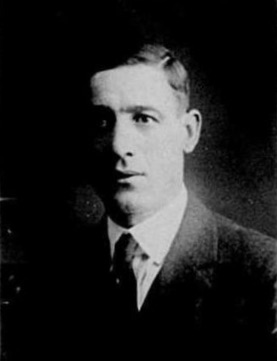
Thomas Gagliano was an Italian-born American mobster and boss of what U.S. federal authorities would later designate as the Lucchese crime family, one of the "Five Families" of New York City. He was a low-profile boss for over two decades. His successor was his longtime loyalist and underboss, Tommy Lucchese.

Joseph Magliocco, also known as "Joe Malayak" and "Joe Evil Eye", was a Sicilian-born New York mobster and the boss of the Profaci crime family from 1962 to 1963. In 1963, Magliocco participated in an audacious attempt with Joseph Bonnano to kill other family bosses and take over the Mafia Commission. The attempt failed, and, while his life was spared, he was forced into retirement. Soon after, he died of a heart attack on December 28, 1963.
A series of meetings between Sicilian Mafia and American Mafia members were allegedly held at the Grand Hotel et des Palmes in Palermo, Sicily, between October 12–16, 1957. Also called the 1957 Palermo Mafia summit, the gathering allegedly discussed the transatlantic illegal heroin trade between the American and the Sicilian Mafia. The FBI believed it was this meeting that established the Bonanno crime family from New York in the heroin trade.
The Commission is the governing body of the American Mafia, formed in 1931 by Charles "Lucky" Luciano following the Castellammarese War. The Commission replaced the title of capo di tutti i capi, held by Salvatore Maranzano before his murder, with a ruling committee that consists of the bosses of the Five Families of New York City, as well as the bosses of the Chicago Outfit and, at various times, the leaders of smaller families, such as New England, Buffalo, Philadelphia, Detroit, and others. The purpose of the Commission was to oversee all Mafia activities in the United States and serve to mediate conflicts among families.
Gaspar or Gaspare DiGregorio was a New York mobster and a high-ranking member of the Bonanno crime family who was a key figure in the "Banana War".
Paul Sciacca was a New York City mobster who succeeded Joseph Bonanno as boss of the Bonanno crime family in 1968. He was succeeded by Natale Evola in 1971.
The San Jose crime family, also known as the Cerrito crime family or the San Jose Mafia, was an Italian-American Mafia crime family based in San Jose, California. The San Jose family was one of the two families that controlled organized crime in San Jose, within the nationwide criminal organization known as the American Mafia ; the other family that ran organized crime in the city was the Bonanno crime family of New York. The family consisted of around 25 "made" members in the 1960s.

The Bonanno crime family is an Italian-American Mafia crime family and one of the "Five Families" that dominate organized crime activities in New York City as part of the criminal phenomenon known as the American Mafia.
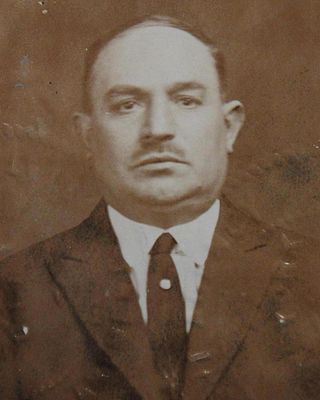
Nicolo "Cola" Schiro was an early Sicilian-born New York City mobster who, in 1912, became the boss of what later become known as the Bonanno crime family.











